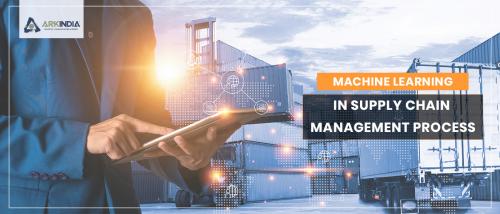
As technology grows, so do business practices. The future of all business is automation and the computer doing most of the work. This is not an innovation we are waiting for anymore; it is called machine learning in the modern world. Machine learning works by studying computer algorithms and patterns and improving processes over time using data and experience. Artificial intelligence has many applications in everyday life, but this technology is beneficial in a multitude of businesses, most importantly, supply chain management.
When menial everyday tasks are automated, companies can save a lot of time, energy, resources, and money, which can be better used elsewhere. This leaves room for executives and mid-level managers to work towards growth and much more important business strategies and decisions.
Supply chain managers can use machine learning processes to optimize inventory management and find better-suited suppliers around you. It can also automatically reorder stock when you’re running out. These are some of the main and most famous services that machine learning can provide you with. Several challenges in the supply chain management and logistics industry can be solved with the meticulous application of machine learning. Let’s explore some more applications of machine learning in supply chain management.
1. Predictive Analysis
Stocking inventory is a tight rope to walk. You don’t want to be understocked and put everything at a halt while you look for suppliers, and at the same time, you wouldn’t want to overstock and affect your profits adversely. With machine learning models that offer you predictive analysis, you can have a tremendous advantage when it comes to managing demand and supply. It helps you maintain optimum inventory levels at all times. These models expertly detect hidden or overlooked past demand patterns and help you make better decisions.
2. Automated Quality Checks
Traditionally, manual quality checks have been around forever to find faults in products and packages. Nowadays, you can have a machine learning program installed to perform automated quality checks using image recognition. Installing this system in your warehouses makes quality check extremely efficient, and the chances of returns and delivering faulty or damaged products become lesser.
3. Real-time Visibility for Customers
Modern customers demand more than just on-time delivery of undamaged products. They also want the option of advanced tracking and communicating with the merchant at all times. At times, the concerns are not that important that a natural person should attend to them. This is where machine learning and automated chatbots take over.
Machine learning employs other mechanics like IoT and analytics to allow users to track their packages in real-time. This increased visibility in the supply chain makes customers feel more involved and a part of the overall process.
4. Warehouse Management
To plan an efficient supply chain, you must have your warehouse and inventory in order. Using AI and Machine Learning systems, you can have a process in place to analyze big data sets needed to keep track of everything in a warehouse. It is also what is necessary to forecast demand trends and save you from over or understocking.
5. Improved Last-Mile Tracking
Last-mile delivery is an essential aspect of any supply chain business since customer relations are made or broken. Also, 28% of all delivery costs are in the last mile. If not monitored carefully and correctly, this could impact the business in very negative ways. Machine learning in a supply chain gives you the edge by collecting data points to make the delivery more efficient; for example, it can learn from how people use to enter their address and compare that to the total time taken in delivery. Bringing forth this kind of data can help a company optimize its process.
If you’re someone in need of supply chain management and logistics services, ARK India is the right place for you. We provide a multitude of solutions and services for you to reach your customer efficiently, helping you save time and reduce costs, and do so while implementing the best that modern advancements have to offer, like AI and machine learning..